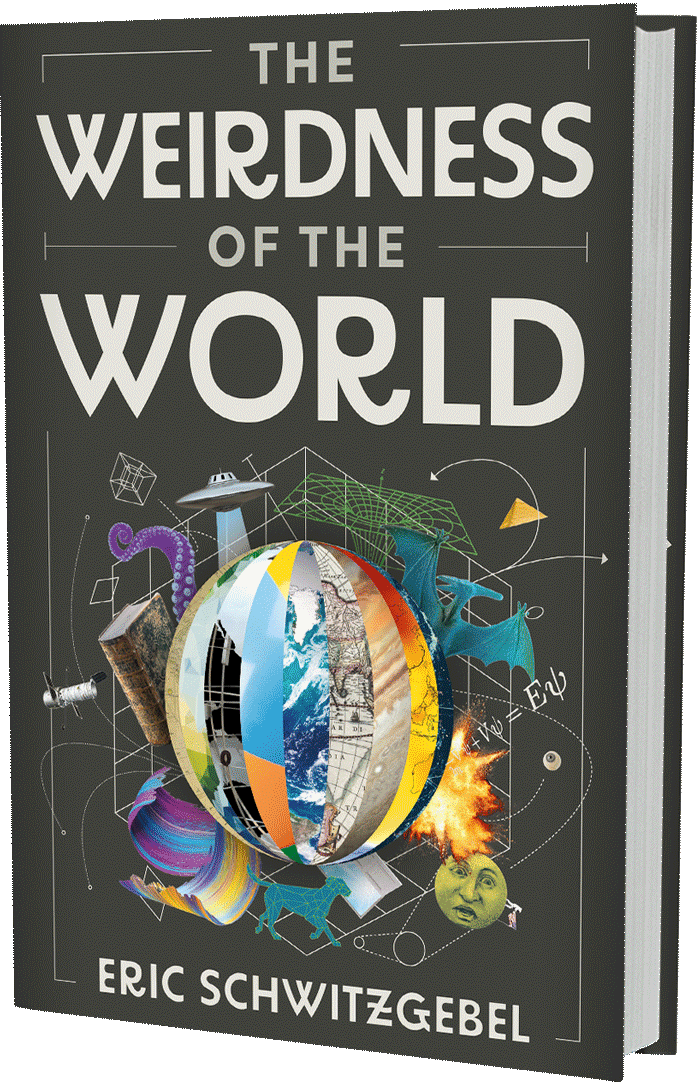Eric Schwitzgebel — The Weirdness of the World
Manage episode 406771110 series 3346825
Do we live inside a simulated reality or a pocket universe embedded in a larger structure about which we know virtually nothing? Is consciousness a purely physical matter, or might it require something extra, something nonphysical? According to the philosopher Eric Schwitzgebel, it’s hard to say. In The Weirdness of the World, Schwitzgebel argues that the answers to these fundamental questions lie beyond our powers of comprehension. We can be certain only that the truth—whatever it is—is weird. Philosophy, he proposes, can aim to open—to reveal possibilities we had not previously appreciated—or to close, to narrow down to the one correct theory of the phenomenon in question. Schwitzgebel argues for a philosophy that opens.
According to Schwitzgebel’s “Universal Bizarreness” thesis, every possible theory of the relation of mind and cosmos defies common sense. According to his complementary “Universal Dubiety” thesis, no general theory of the relationship between mind and cosmos compels rational belief. Might the United States be a conscious organism—a conscious group mind with approximately the intelligence of a rabbit? Might virtually every action we perform cause virtually every possible type of future event, echoing down through the infinite future of an infinite universe? What, if anything, is it like to be a garden snail? Schwitzgebel makes a persuasive case for the thrill of considering the most bizarre philosophical possibilities.
Eric Schwitzgebel is professor of philosophy at the University of California, Riverside. He is the author of A Theory of Jerks and Other Philosophical Misadventures; Perplexities of Consciousness; and Describing Inner Experience?
Schwitzgebel has studied the behavior of philosophers, particularly ethicists, using empirical methods. The articles he has published investigate whether ethicists behave more ethically than other populations. In a 2009 study, Schwitzgebel investigated the rate at which ethics books were missing from academic libraries compared to similar philosophy books. The study found that ethics books were in fact missing at higher rates than comparable texts in other disciplines. Subsequent research has measured the behavior of ethicists at conferences, the perceptions of other philosophers about ethicists, and the self-reported behavior of ethicists. Schwitzgebel’s research did not find that the ethical behavior of ethicists differed from the behavior of professors in other disciplines. In addition, his research found that the moral beliefs of professional philosophers were just as susceptible to being influenced by irrelevant factors as those of non-philosophers. Schwitzgebel has concluded that, “Professional ethicists appear to behave no differently than do non-ethicists of similar social background.”
Shermer and Schwitzgebel discuss:
- bizarreness
- skepticism
- consciousness and sentience
- AI, Turing Test, sentience, existential threat
- idealism, materialism and the ultimate nature of reality
- solipsism and experimental evidence for the existence of an external world
- Are we living in a computer simulation?
- mind-body problem
- truths: external, internal, objective, subjective, and mind-altering drugs
- anthropic principles and fine-tuning of the universe
- theism, atheism, agnosticism, deism, pantheism, panpsychism
- free will, determinism, compatibilism
- Is the universe predetermined?
- entropy, the arrow of time, and causality
- infinity
- souls and immortality, mind uploading
- multiverse, parallel universes, and many worlds hypothesis
- why there is something rather than nothing.
If you enjoy the podcast, please show your support by making a $5 or $10 monthly donation.
29 episodi





